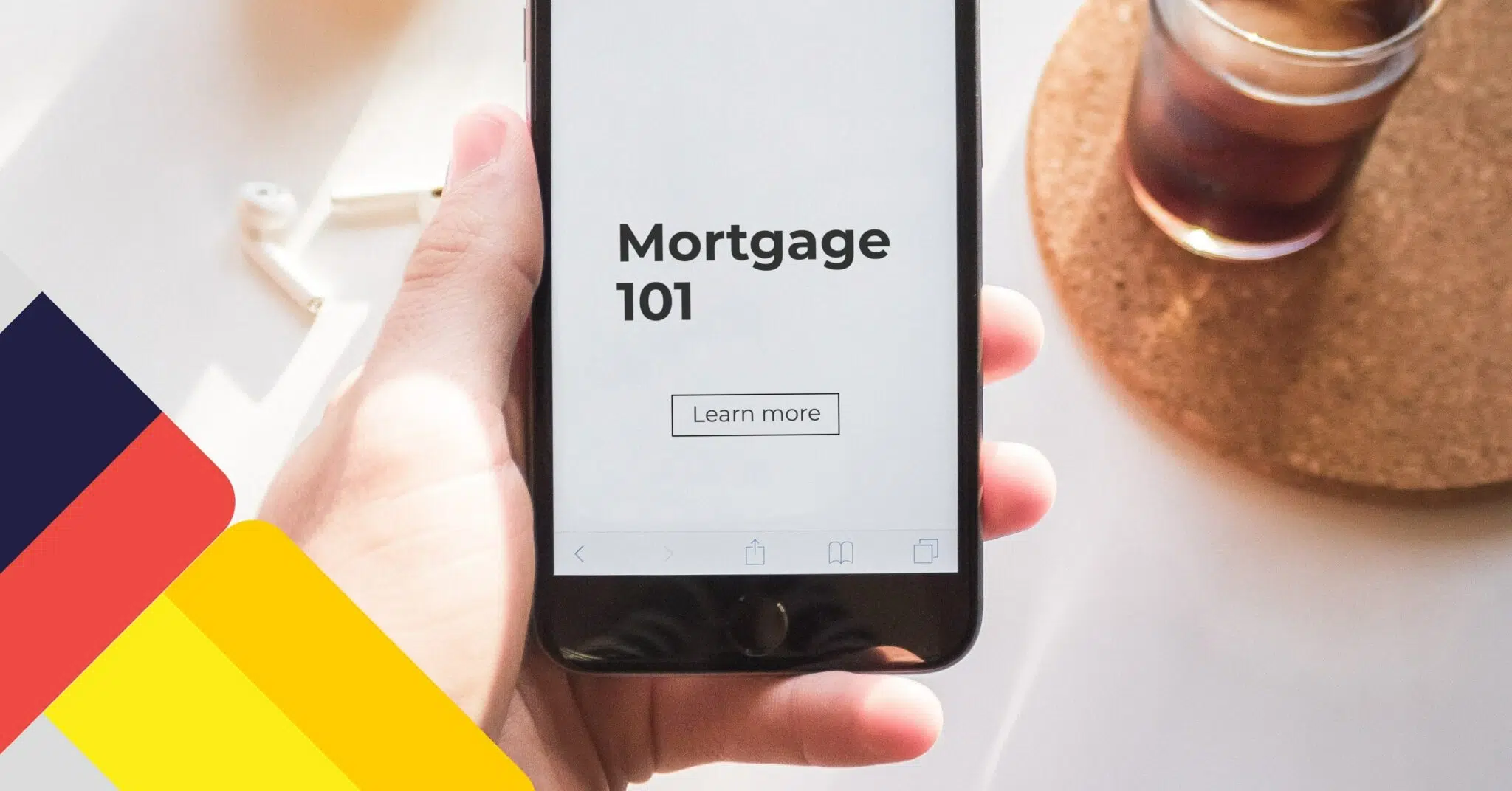What Is a Mortgage? How Mortgages Work

Table of contents
Before the homebuying process can begin, it’s essential to understand what a mortgage is and how it works. A mortgage loan allows you to purchase property without immediately having the entire lump sum available to complete the purchase. A mortgage splits the total amount owed into more manageable installments, which are repaid over time.
A mortgage is a legal agreement between you, the borrower, and your chosen lender. In this article, we break down the basics of mortgages, what they are, their components, how they work, and the different types available to homebuyers in Canada.
Key Takeaways
- A mortgage is a type of loan used to finance the purchase of a property using that property as collateral.
- Mortgage payments consist of principal and interest and can also include property taxes and mortgage default insurance premiums.
- Many different types of mortgages are available, all with various features and benefits to accommodate a wide variety of borrower needs.
What is a Mortgage?
A mortgage is a loan used to purchase property. If you default on the loan, the property serves as collateral for the mortgage. When you take out a mortgage, you agree to repay the borrowed amount plus interest over a set period of time.
A mortgage is secured by the property you are purchasing. When a mortgage is issued to you by the lender, this property is used as collateral, with the mortgage acting as a registered lien against the property until fully repaid.
How Do Mortgages Work?
When you take out a mortgage, the lender will provide the funds needed to finance the difference between the property’s purchase price minus the downpayment you will make upfront to secure the loan. You agree to repay the loan amount (principal) over a set period of time (amortization) plus interest, which is re-assessed at regular intervals (terms).
The amount you pay as a mortgage payment will be based on the amount you borrow from the lender, interest rate, amortization, mortgage default insurance (if you put down less than 20% as a downpayment), and whether you choose (or your lender requires you) to include property taxes as part of your mortgage payments.
The Process of Getting a Mortgage
Getting a mortgage involves several steps, starting with finding a lender. You will need to shop around to find a lender that offers the best rates and features, benefits, and restrictions on its mortgage products so you can find the one that best suits your borrowing needs.
Next, you will be required to submit documents for approval, including T4s, recent paystubs, notice of assessment (NOA), employment letter, and any other proof of income. You will also need proof of downpayment from your savings, RRSPs, gifts, or the sale of another property.
The lender will evaluate your credit score, income, downpayment, and current debts to determine your eligibility for a mortgage. They will also calculate your gross (GDS) and total (TDS) debt service ratios to ensure they fall within the qualifying criteria.
At this stage, you can obtain a pre-qualification or pre-approval for a mortgage if you haven’t found a property yet. This document will outline how much you can comfortably afford for a mortgage so you can shop within your budget.
If you have already found a property, you will need to provide some additional documents to the lender related to the property, such as the real estate listing (MLS), address, amount of property taxes either confirmed by MLS or a property tax statement, condo fees if applicable, estimated heating costs, official purchase agreement with the purchase price and closing date, home appraisal or inspection, and your real estate lawyer’s contact information.
Once you have provided all the required documents, the lender will be able to approve your mortgage application.
Types of Mortgage to Choose
Several types of mortgages are available, each with its features and benefits. Here are some of the most common types of mortgages.
Fixed-Rate Mortgages
A fixed-rate mortgage has a fixed interest rate that is locked in for the duration of the mortgage term. The principal and interest you pay on the mortgage will remain the same throughout your term, regardless of any changes to interest rates.
Adjustable-Rate Mortgage (ARM)
An adjustable-rate mortgage (ARM) has an interest rate that will change with changes to your lender’s prime rate. The principal amount remains fixed while the interest portion will adjust, increasing or decreasing in the same direction as interest rates when they change. Mortgage payments can fluctuate with ARMs if interest rates change during the term.
High-Ratio Mortgages
High-ratio mortgages are for borrowers who put down less than 20% as a downpayment. With this type of mortgage, you will be required to purchase mortgage default insurance, which can either be paid upfront or added to your mortgage and paid down as part of your mortgage payments.
Conventional Mortgages
Conventional mortgages are for borrowers who put down 20% or more as a downpayment. With this type of mortgage, default insurance is not required.
Open, Closed and Convertible Mortgages
Open, closed and convertible mortgages are a solution that allows you to customize your mortgage strategy. Keeping your mortgage open will enable you to make extra payments or pay off the mortgage balance anytime during the term without penalty. Closed mortgages will limit prepayments to a certain percentage, with penalties for exceeding the limit or paying off the mortgage before the end of the term. Convertible mortgages come with the same prepayment restrictions as closed mortgages but have shorter terms with the option to switch to a longer term without penalty.
Get approval on your low rate today
No big bank bias, just commission-free experts ready to help you.
What Are The Parts Of A Mortgage?
Every mortgage payment has at least two components: principal and interest. Some lenders will also collect and remit property taxes on your behalf if you prefer the lender to include this amount in your mortgage payment. If you put down less than 20% as a downpayment, you may include the default insurance premiums in your mortgage instead of paying the amount upfront.
Principal
The mortgage principal is the outstanding balance owed on your mortgage. This is calculated as the amount borrowed from the lender minus any amounts that have been repaid. As you make mortgage payments, your principal amount will be reduced.
Interest
Interest is the percentage paid as the fee for borrowing money from the lender. The interest rate is expressed as a percentage of your total amount and is paid as part of your regular mortgage payments. You’ll pay more interest at the beginning of your mortgage and less over time as your principal balance decreases.
Property Taxes
Some lenders may collect and remit property taxes on your behalf, including this amount in your mortgage payments. Your lender will hold the portion collected with each mortgage payment in an escrow (or property tax) account until property taxes are due. Then, they will use the funds held in the escrow account to remit payment to the municipality.
Mortgage Default Insurance
Mortgage default insurance is mandatory if you put down less than 20% as a downpayment. This insurance protects the lender in the event you default on the loan. When mortgage default insurance is required, you can pay the premium upfront in cash or add it to your mortgage and pay it down as you make regular mortgage payments.
Principal vs Interest Paid on a Mortgage Loan
The principal is the original loan amount you borrowed to purchase your home. The interest is the cost of borrowing that money calculated based on interest rates set by your lender, plus or minus any discounts.
At the start of your amortization schedule, a larger portion of your mortgage payments will go toward paying interest, and as time goes on and your principal amount decreases, more of your payments will go toward reducing the principal and less toward paying interest.
The amortization, or the total length of time it takes to pay your mortgage off in full, will influence the amount of interest paid over the life of the mortgage. Changes to interest rates when you renew or refinance can also affect the amount of interest you will pay over the life of the loan.
Frequently Asked Questions
How do I compare mortgages?
When comparing mortgages, you will need to compare similar products (ex., 5-year fixed vs. 5-year fixed) and features like the term, amortization, fees and penalties, and interest rates.
Can anyone get a mortgage?
Anyone can apply for a mortgage; however, approval will be based on several factors, including income, credit score, debt servicing ratios, and downpayment.
What does fixed vs variable mean on a mortgage?
Fixed mortgages have an interest rate that remains unchanged throughout the mortgage term. Variable mortgages have an interest rate that fluctuates, increasing or decreasing based on changes in interest rates.
How many mortgages can I get on my home?
Depending on your property’s equity and ability to repay the loan, you can potentially have multiple mortgages on your home. However, your lender may restrict you and allow only a single mortgage on the property.
Final Thoughts
Now that you understand what a mortgage is, how it works, and the types available, you will be well-equipped to find the right one to finance your future home. If you’re ready to move forward with a mortgage, speak to nesto’s knowledgeable mortgage experts for your home purchase today.
Ready to get started?
In just a few clicks, you can see our current rates. Then apply for your mortgage online in minutes!















